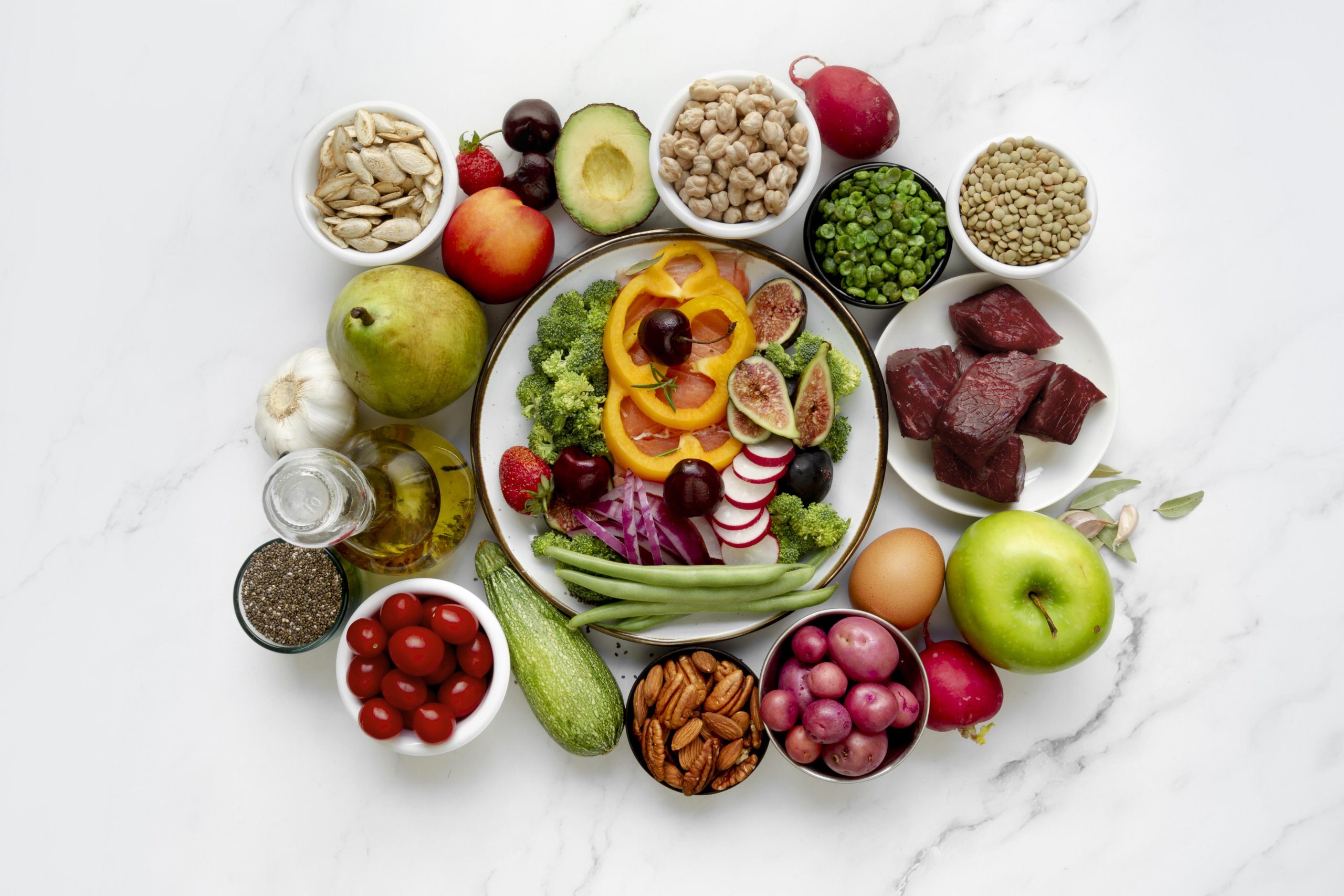Plant-based diets have surged in popularity over the past decade, and 2025 is expected to see even more innovation and adoption. From sustainability to health-conscious eating, plant-based trends are shaping the way people approach food worldwide. This guide explores the top plant-based trends influencing diets in 2025 and offers insight into how to incorporate them into daily life.
Understanding the Plant-Based Movement
Plant-based diets focus primarily on consuming foods derived from plants, including vegetables, fruits, legumes, nuts, seeds, and whole grains. Unlike strict veganism, plant-based eating emphasizes nutrient-dense foods rather than the complete exclusion of animal products. This approach supports health, sustainability, and ethical considerations.
Why Plant-Based Diets Are Trending
- Environmental sustainability: Reducing meat and dairy consumption lowers carbon footprint.
- Health benefits: Plant-based foods support weight management, heart health, and gut wellness.
- Ethical considerations: Many individuals choose plant-based diets to avoid animal cruelty.
- Accessibility and innovation: Plant-based alternatives are increasingly available and affordable.
- Culinary exploration: Chefs and food brands are creating innovative plant-based dishes.
Top Plant-Based Trends Influencing 2025 Diets
1. Alternative Protein Sources
Protein is a central focus of plant-based diets. In 2025, expect a rise in alternative protein sources like pea protein, soy, lentils, chickpeas, and emerging options such as algae, hemp, and mycoprotein. These options provide essential amino acids and help reduce reliance on animal products.
2. Plant-Based Meat and Dairy Alternatives
Plant-based meat and dairy alternatives are becoming more realistic and flavorful. Products like plant-based burgers, sausages, cheeses, and milk alternatives (almond, oat, soy, pea) are meeting the taste and nutritional demands of consumers while reducing environmental impact.
3. Functional Foods and Beverages
Functional plant-based foods that provide additional health benefits are on the rise. Think fortified plant milks, probiotic-rich yogurts, adaptogenic teas, and energy-boosting snacks. These foods not only nourish but also enhance immunity, mental clarity, and overall well-being.
4. Sustainable and Regenerative Agriculture
Consumers are increasingly mindful of the source of their food. Sustainable farming practices, regenerative agriculture, and ethical sourcing of plant-based ingredients are becoming key factors in diet choices, promoting environmental stewardship and soil health.
5. Global and Ethnic Plant-Based Cuisines
Plant-based diets are incorporating flavors from around the world. Mediterranean, Middle Eastern, Asian, and Latin American plant-based dishes are gaining popularity. Ingredients like miso, tempeh, tahini, jackfruit, and kimchi add variety, nutrition, and cultural richness to meals.
6. Low-Waste and Zero-Waste Cooking
Minimizing food waste is a major trend in 2025 diets. Plant-based cooking encourages the use of entire vegetables, peels, and scraps, reducing environmental impact and promoting creative culinary practices such as vegetable broths, composting, and reusable packaging.
7. Personalized Plant-Based Nutrition
Advances in nutrition science allow for personalized plant-based diets tailored to individual needs. DNA testing, microbiome analysis, and nutrient tracking apps help people optimize their plant-based intake for energy, mental focus, and long-term health.
8. Functional Plant Oils
Plant oils such as flaxseed, hemp, avocado, and coconut are gaining attention for their health-promoting properties. These oils provide essential fatty acids, antioxidants, and bioactive compounds that support heart, brain, and skin health.
9. Fermented and Gut-Friendly Foods
Gut health is a major focus in modern nutrition. Fermented plant-based foods like sauerkraut, kimchi, tempeh, kombucha, and miso help maintain a healthy microbiome, improving digestion, immunity, and overall vitality.
10. Plant-Based Meal Kits and Delivery Services
Convenience is driving adoption. Subscription-based plant-based meal kits and delivery services provide easy access to balanced, nutrient-rich meals. This trend is helping busy individuals adopt plant-based diets without compromising on taste or nutrition.
11. High-Protein Snacks
Plant-based snacks with high protein content are becoming mainstream. Options include protein bars, roasted chickpeas, nut-based snacks, and pea protein crisps. These snacks support energy levels and satiety between meals.
12. Climate-Conscious Food Choices
Environmental sustainability is influencing food purchasing decisions. Consumers prefer ingredients that are locally sourced, seasonal, organic, and have a lower carbon footprint. This conscious approach aligns with broader plant-based trends.
13. Plant-Based Supplements
With an increasing focus on optimal health, plant-based supplements like spirulina, chlorella, vitamin B12, and plant-derived protein powders are widely used to fill nutritional gaps.
14. Innovative Cooking Techniques
Air frying, sous-vide cooking, and fermentation are being integrated into plant-based meal preparation. These techniques retain nutrients, enhance flavors, and provide a gourmet experience while maintaining plant-based principles.
15. Community and Social Influence
Social media and online communities continue to drive plant-based trends. Influencers, chefs, and wellness experts share recipes, tips, and success stories, inspiring wider adoption and creativity in plant-based eating.
Health Benefits of Plant-Based Diets
- Improved heart health and cholesterol levels
- Weight management and reduced obesity risk
- Enhanced digestion and gut microbiome support
- Lower inflammation and improved metabolic health
- Reduced risk of chronic diseases such as diabetes and certain cancers
- Increased energy and vitality
Challenges in Plant-Based Diet Adoption
- Ensuring adequate protein intake
- Vitamin and mineral deficiencies (B12, iron, calcium, zinc)
- Finding convenient, tasty, and affordable plant-based options
- Overcoming social and cultural barriers
Tips for Incorporating Plant-Based Trends into Daily Life
- Start with plant-based meals a few times a week
- Experiment with meat alternatives and legumes
- Include a variety of colorful vegetables and fruits
- Use herbs, spices, and fermented foods for flavor and nutrition
- Track nutrients to ensure balanced intake
- Opt for sustainable, locally-sourced ingredients
- Involve family and friends to make plant-based meals fun and engaging
Conclusion
Plant-based diets continue to evolve, and 2025 promises exciting innovations that combine health, sustainability, and culinary creativity. From alternative proteins and functional foods to personalized nutrition and low-waste cooking, these trends are reshaping the way we eat and think about food. By embracing plant-based principles and incorporating these trends into daily life, individuals can enhance their health, support the environment, and enjoy flavorful, nutrient-rich meals. Caresurely encourages exploring these trends to adopt a balanced, sustainable, and forward-thinking approach to nutrition in 2025 and beyond.



